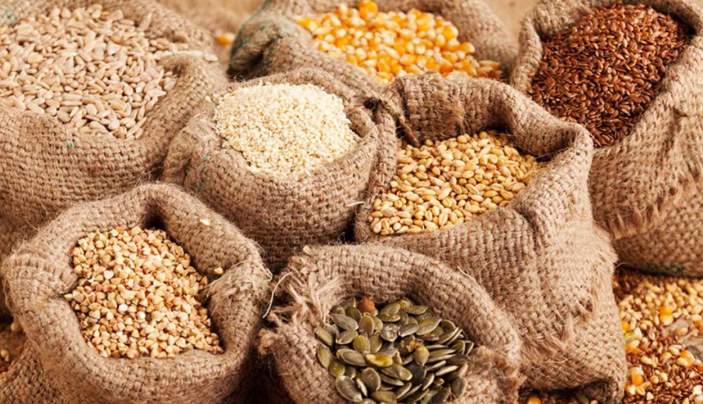
To gain the respect of developing countries, Africa must turn itself into a global powerhouse in food and agriculture, by taking advantage of its vast natural resources to develop its economies and transform the lives of the people.
The President, African Development Bank Group (AfDB), Dr Akinwumi A. Adesina, who disclosed this in his keynote speech, titled: “For the World to Respect Africa,” during The Guardian Newspapers 40th anniversary in Lagos, regretted that the continent has not been able to feed itself, despite possessing 65 per cent of all the uncultivated arable land left in the world.
He noted that feeding 9.5 billion people in the world by 2050 will be a challenge, given climate change and the limited amount of arable land in many countries, including developed countries.
“Africa will play a critical role in this as the continent has 65 per cent of all the uncultivated arable land left in the world. But despite this, Africa has not been able to feed itself.
“Africa’s food import bill hit $85b in 2012, and is expected to surpass $110b by 2025, with 283 million people going to be hungry every year. Africa will gain respect when it is able to feed itself. Any nation or region that begs for food is free only in words, but dependent on others for life.
“It is time for poverty accountability for governments. Africa will not earn respect globally until we end poverty at scale. For too long we have allowed poverty to linger pervasively in the midst of plenty. Our nation is resource rich and yet the majority of our fellow citizens remain poor. We often tend to accept poverty as normal,” he said.
To reverse the trend, Adesina said the continent must have public accountability on poverty and governments must realise that it is their responsibility to lift all their people out of poverty and into wealth as fast as possible.
“We have seen clear examples of such progress in other regions of the world, especially in Asia, over the last three decades. There is no reason why acute poverty cannot be eradicated in Nigeria and across Africa. We have to become a continent that grows inclusive and well distributed wealth.
“By tackling poverty, I do not mean so called “poverty alleviation” because this is a term that I reject in its entirety. We cannot be comfortable with poverty. If you are sick from malaria and you visit with your doctor who says, “I will alleviate your malaria”, please get out and look for a better doctor!
“I do not believe in “poverty alleviation.” If someone moves from $1.30 or $1.50 per day to $1.60 per day, they are still poor,” the AfDB boss said.
While expressing assurances that the continent is changing the narrative, he said the bank has invested over $8b in agriculture over the past seven years, which has improved food security for 250 million people.
“When the Russian-Ukraine war broke out and disrupted wheat and maize exports, Africa faced a potential food crisis. I said Africa will not see a food crisis and that Africa should not go around begging for food, or pleading with Russia to have food, but rather put its own seeds in ground and produce food.”
“The AfDB rapidly approved a $1.5b emergency food production facility for African countries. Today, this facility is supporting 20 million farmers in 36 countries to produce 38 million tonnes of food valued at $12b. That is eight million metric tonnes above the 30 million metric tonnes of food Africa was losing from imports from Russia and Ukraine.
“Africa did not beg. Africa produced more food. And Africa gained respect.
Our support to Ethiopia helped it achieve self-sufficiency in wheat within four years, turning it into a wheat exporting nation. To replicate global success, the African Development Bank helped organise the Feed Africa summit in January, which attracted 34 heads of state and government. Leaders did more than speak, they committed to driving self-sufficiency and food sovereignty within five years.”
Adesina affirmed that globally, the bank was able to mobilise $72b to help Africa achieve these targets, noting that the continent must do more than simply producing more food and agricultural commodities.
“Take for example, that Africa which accounts for 65 per cent of the production of cocoa, receives only two per cent of the $120b global value for chocolates.
“While African farmers languish in poverty, chocolate processors smile all the way to the bank. One is condemned to penury and the other creates wealth. The same can be said of cotton, tea, coffee, cashew, and other raw commodities that Africa exports at a significant loss in revenues and jobs.
“Let me be very clear on two issues on this: the export of raw commodities is the door to poverty. The export of value-added products is the highway to wealth.
“To gain respect, Africa must turn itself into a global powerhouse in food and agriculture. That is why the Bank and its partners have provided $1.6 billion for the development of Special Agro-Industrial Processing Zones to support private sector processing and value addition to commodities in 25 zones across 15 countries.
“Our newly launched $3b Alliance for Special Agro-Industrial Processing Zones will support the development of these zones in 11 more countries. Africa must turn the sweat of its farmers into wealth,” he said.
Adesina affirmed that Africa will gain respect when it takes advantage of its vast natural resources to develop its economies and to transform the lives of the people.






